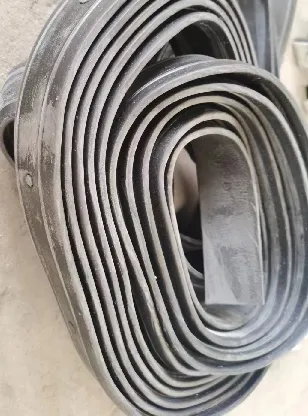loading...
- No. 9, Xingyuan South Street, Dongwaihuan Road, Zaoqiang County, Hengshui, Hebei, China
- admin@zjcomposites.com
- +86 15097380338
- Welcome to visit our website!
Benefits of Using Fiberglass Water Tanks for Storage Solutions
The Benefits and Applications of Fiberglass Water Tanks
Fiberglass water tanks have gained popularity in various industries due to their remarkable properties and versatility. Constructed from a composite material made of glass fibers and resin, these tanks present numerous advantages over traditional storage solutions like metal or concrete tanks. In this article, we will explore the benefits and applications of fiberglass water tanks, highlighting why they are an excellent choice for water storage needs.
Durability and Longevity
One of the most significant advantages of fiberglass water tanks is their durability. Unlike metal tanks that can corrode over time due to exposure to water and environmental elements, fiberglass tanks resist rust and corrosion. This resistance leads to a prolonged lifespan, often exceeding 30 years with proper maintenance. Moreover, fiberglass can withstand extreme temperatures and pressures, making it suitable for various climates and applications.
Lightweight and Easy to Install
Fiberglass water tanks are considerably lighter than their concrete or steel counterparts. This lightweight nature simplifies transportation and installation, reducing labor costs and time. The ease of installation allows for flexibility in placement, making them ideal for remote areas where heavy machinery may not have access. In many cases, fiberglass tanks can be installed without the need for complex structural support.
Cost-Effectiveness
While the initial costs of fiberglass water tanks may be higher than those of traditional materials, their long-term savings can be substantial. The low maintenance requirements, durability, and resistance to environmental factors mean that replacements or repairs are infrequently needed. Additionally, with reduced energy costs associated with temperature regulation and insulation, fiberglass tanks can be a more economical choice over their lifespan.
fiberglass water tank

Versatile Applications
Fiberglass water tanks are used across various industries. In agriculture, they serve as efficient storage solutions for irrigation systems and livestock water supplies. The food and beverage industry also benefits from fiberglass tanks, which can be used for storing ingredients or waste management due to their ability to maintain the quality of the contents. Additionally, these tanks are increasingly utilized in residential settings for rainwater harvesting and emergency water supply.
Environmental Benefits
As the world focuses more on sustainability, fiberglass water tanks provide an eco-friendly option for water storage. Their ability to resist algae growth ensures that water quality remains high, reducing the need for chemical treatments. Furthermore, fiberglass can be molded into various shapes and sizes, allowing for optimal usage of space and resources. When properly maintained, fiberglass tanks can support a more sustainable approach to water consumption and conservation.
Customizable Designs
Fiberglass tanks can be customized to meet specific size and shape requirements, catering to unique user needs. Manufacturers can create tanks designed for specialized purposes, such as high-pressure applications or special chemical resistance. This adaptability makes fiberglass tanks a versatile choice for many different industries and applications.
Conclusion
In conclusion, fiberglass water tanks present a variety of benefits that make them an excellent option for water storage. Their durability, lightweight nature, cost-effectiveness, and versatility ensure that they can meet the demands of various industries and applications. As the focus on sustainability grows, the use of fiberglass tanks can contribute to more efficient and environmentally friendly water management practices. Whether for agricultural, industrial, or residential use, fiberglass water tanks are poised to remain a durable and practical choice for the future.
-
GRP Structures: The Future of Lightweight, High-Performance EngineeringNewsJun.20,2025
-
FRP Water Tank: High-Performance Storage for Corrosive and Clean Water SystemsNewsJun.20,2025
-
FRP Square Tube: The New Industry Standard for Chemical and Structural ApplicationsNewsJun.20,2025
-
FRP Pultruded Profiles: The Ultimate Choice for Lightweight Structural StrengthNewsJun.20,2025
-
FRP Handrails: The Safer, Smarter, and Stronger Choice for Modern InfrastructureNewsJun.20,2025
-
FRP Grating: The Smart Solution for Durable, Lightweight Industrial FlooringNewsJun.20,2025
-
Why Choose a Galvanized Water Tank for Your Storage NeedsNewsMay.21,2025
